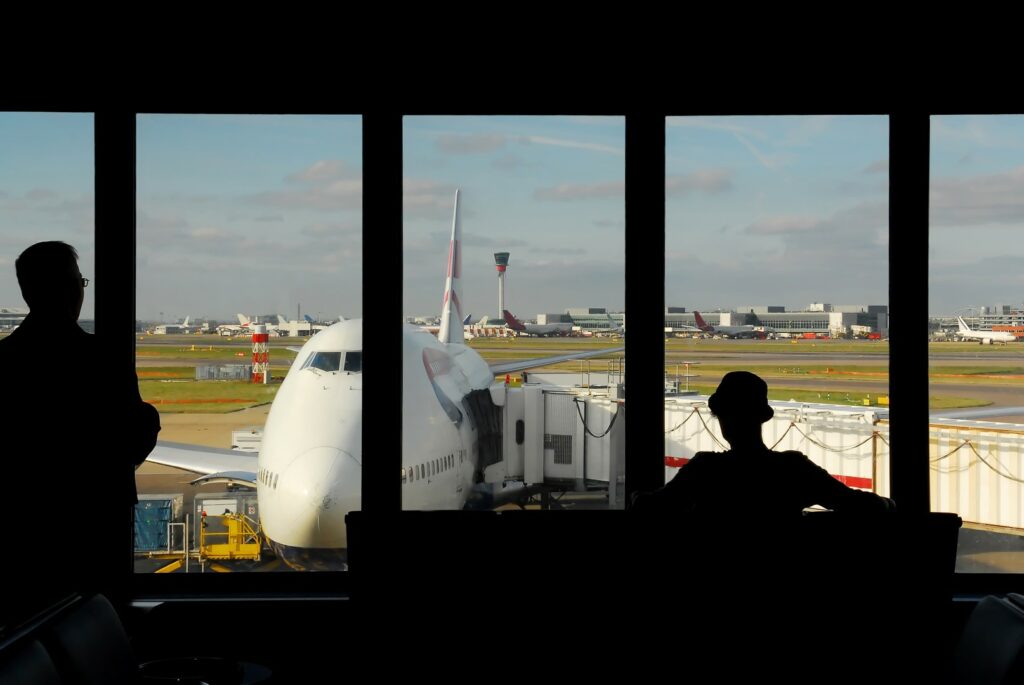Rwanda deportation plan deepens tensions between bishops and UK government
Rwanda deportation plan deepens tensions between bishops and UK government
British bishops have condemned plans to deport asylum seekers to Rwanda, deepening tensions with Boris Johnson’s populist government.
British bishops have become leading voices in the criticism of the UK government’s ambitions to deport asylum seekers to Rwanda. Whilst historically the Church of England has shared many policy positions with the Conservative Party, these criticisms of Boris Johnson’s government are just the latest in a series of clashes between bishops and ministers in the UK.
What is the Rwanda Plan?
The British government’s new policy was first proposed in early 2022 and states that asylum seekers who arrive in the UK will be sent to Rwanda to await the result of their applications for asylum. If their applications are successful, they will be given asylum in Rwanda, rather than the UK. The government claims that the desired outcome is to discourage those seeking asylum from crossing the English Channel illegally and therefore undermine the business of people traffickers and criminal gangs.[1]
However, the plan has received widespread criticism both relating to its legal practicability as well as its consequences from a moral perspective. This criticism has come from human rights groups, opposition parties and, according to reports, even the future King of England, Prince Charles.[2] [3] [4]
British Bishops clear in condemnation
Yet whilst criticism from human rights groups and the opposition would not have surprised the government, comments from bishops will have been harder to dismiss.
These criticisms have been led by Justin Welby, the Archbishop of Canterbury and the head of the global Anglican faith. In April 2022, Welby spoke about the plan during his Easter sermon, and described it as “the opposite of the nature of God.”[5] The archbishop once again criticised the plan in June, calling it “heartless.”[6]
Welby has not been alone in criticising the policy. The Bishop of Manchester, Rev David Walker, described the plan as being a “moral low” and justified his view by referring to a line from the Bible that states ‘do not punish the innocent to catch the guilty’.[7] Outside of England, the Archbishop of Wales also stated the plan was “immoral and ineffective,” whilst the Archbishop of Glasgow (Scotland) said he was “revolted” by the plan and described it as an “offence against human dignity.”[8]
Church and Conservative Party relations
The fact that leading bishops have been so explicit in their criticism is of particular interest when we understand the history of the relationship between the Church of England and the Conservative Party.
The Conservative Party’s support for the Church dates back to the formation of the Anglican Church itself in 1660, and the ‘Tories’ consistently defended the institution during centuries of sectarian divisions. This gave rise to the famous and often quoted phrase that “the Church of England is the Conservative Party at prayer.”[9] In modern times, both long-serving Conservative Prime Minister Margaret Thatcher and 2016-2019 PM Theresa May were open about how their faith influenced their politics.[10] [11]
However, in recent years, the relationship between the Tories and the Church has become tenser. Since becoming archbishop in 2013, Justin Welby has on a number of occasions criticised the impact of Conservative governments’ economic policies, such as austerity, on increasing poverty in the UK.[12] [13] [14] Meanwhile, in 2016, Welby expressed his personal support for the UK to remain in the European Union, a view that was defeated in a referendum.[15]
Welby continued to criticise Brexit as negotiations took place after the referendum, and in 2017 linked the arguments for it to the surge of far-right parties across Europe and the United States.[16] Therefore, when the most recognisable pro-Brexit Conservative, Boris Johnson, became Prime Minister, the potential for conflict between his populist style of politics and Welby’s views was clear.
This tension continued and in late 2019, Welby faced criticism from hardline Brexiteers over having held meetings with MPs regarding plans for him to chair “citizens assemblies” to prevent the UK from leaving the EU without a deal.[17]
Populism vs tradition
Yet, despite this ongoing tension, it is in 2022 that bishops have most openly expressed differences with the government.
Most urgently, bishops have sought to pressure the government to do more to help the poor during the cost of living crisis. For example, the Bishop of London criticising the “injustice that is present throughout the country,” or the Bishop of Durham urging the government to “act with compassion and give people the dignity of being able to put food on the table.” [18] [19]
As well as calls for support for the poor, there have also been clashes regarding Boris Johnson’s own conduct as Prime Minister. In June 2022, the Bishop of Buckingham publicly condemned Johnson’s behaviour regarding his attendance at parties held at Downing Street during the COVID-19 lockdown. Rt Rev Dr Alan Wilson said that Johnson had “obviously” lied about the parties and said that the UK needed a leader it could trust.[20]
Meanwhile, a public disagreement emerged in Worcester after the city’s bishop criticised the party controversy. The Conservative leader of the city’s council wrote on Twitter that “unelected bishops” should stay out of party politics, adding that “democracy must always triumph over theocracy.”[21]
It is important therefore to understand that the criticisms of the Rwanda plan are not the first disagreement between the clergy and the government, but instead the latest in a series of differences over policies and principles.
A point of comparison
The case of the bishops taking on the role of speaking for vulnerable groups such as asylum seekers or those in poverty is not unique to the United Kingdom. In fact, Archbishop Welby and his bishops’ defence of such groups has much in common with the clashes between Pope Francis and far-right leaders such as Matteo Salvini in Italy, Santiago Abascal in Spain, and Marine Le Pen in France. [22] [23] [24]
Whilst Johnson’s government may not represent the same type of far-right politics of those leaders, the Church of England has made clear that it will not stay silent in the face of policies and politicians who fail to protect the rights and security of the most vulnerable in society.
Interested in similar topics? Go to our Dashboard and get free updates.
Sources
[1] Rwanda asylum plan: Campaigners’ challenge to be heard on Monday – BBC News
[2] Rwanda asylum plan: Flight due to depart as legal bids fail – BBC News
[3] Patel seeks to curb modern slavery claims as Rwanda plan labelled ‘government by gimmick’ | Immigration and asylum | The Guardian
[4] UK vows more Rwanda deportation flights after legal setback : NPR.
[5]UK’s Rwanda asylum plan the ‘opposite of nature of God’ – Welby – BBC News
[6] Archbishop wades into Rwanda migrants row AGAIN: Justin Welby brands deportation policy ‘heartless’ | Daily Mail Online
[7] Bishop of Manchester blasts government policy to send asylum seekers to Rwanda as a ‘moral low’.
[8] Archbishop revolted by Rwandan refugee plan – The Scottish Catholic
[9] The Conservative Party at Prayer | Lord Lexden OBE
[10] Margaret Thatcher’s Christian Faith | [site:name] | National Review
[11] Theresa May tells how her Christian faith sustained her after she realised she could not become a mother
[12] British left vulnerable to hunger after welfare reforms, warns Justin Welby | Poverty | The Guardian
[13] Justin Welby warns of divisive Brexit and crushing austerity
[14] Britain’s economic model is ‘broken’, says Justin Welby | Financial Times
[15] Archbishop of Canterbury supports remain campaign in EU referendum | Brexit | The Guardian
[16] Archbishop of Canterbury suggests Brexit ‘in fascist tradition’ | Justin Welby | The Guardian
[17] Brexiters tell archbishop of Canterbury not to interfere | Justin Welby | The Guardian
[18] Bishop of London urges Government to tackle cost of living crisis and health inequality in Easter message
[19] Bishops challenge Government on cost-of-living and climate crises
[20] Bishop’s scathing critcism of Boris Johnson over partygate
[21] Bishop and council leader clash over partygate and Sue Gray report | Worcester News
[22] Papa, Don’t Preach – Foreign Policy
[23] Abascal se refiere al Papa como “ciudadano Bergoglio” y rechaza su propuesta de un salario universal
[24] French presidential hopeful slams Pope Francis for welcoming migrants | National Catholic Reporter






